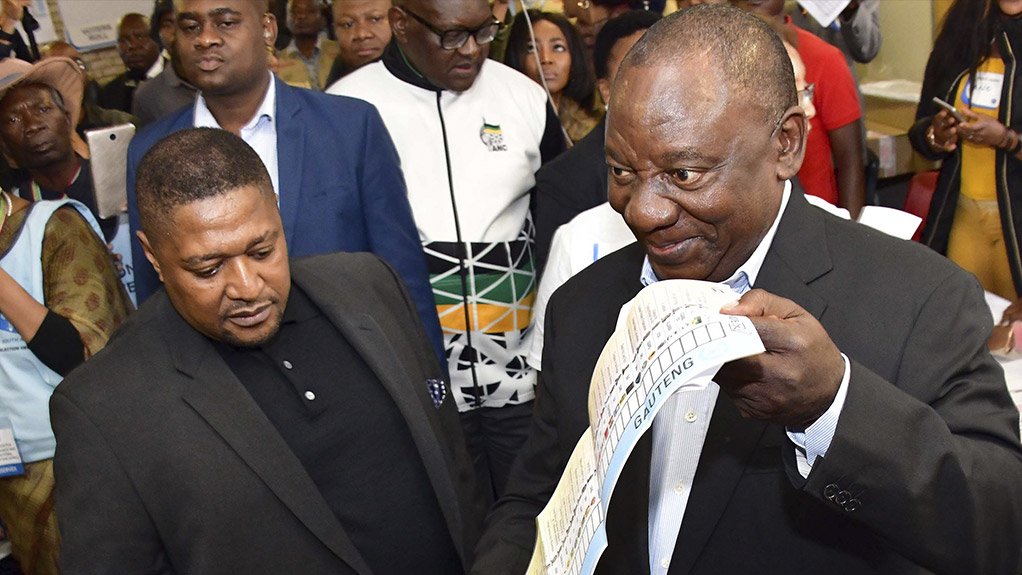Early vote tallies suggest South Africa's ruling African National Congress (ANC) party will retain power after an election on Wednesday, but analysts said its share of the vote could fall below 60% for the first time since the end of white minority rule.
As of 11:00 local time on Thursday, more than four-million votes had been counted out of about 26.8-million registered voters. In the Parliamentary vote, the ANC was on 55%, with the main opposition Democratic Alliance (DA) on nearly 26% and the leftist Economic Freedom Fighters (EFF) on nearly 9%.
South Africans voting for a new Parliament and nine provincial legislatures had expressed frustration at rampant corruption, high unemployment and racial inequalities that persist 25 years after Nelson Mandela's former liberation party swept to power in the first all-race poll in 1994.
Based on the early results, the News24 online site predicted the ANC would win between 56% and 59% of the final vote.
The news organisation's election analyst Dawie Scholtz said the ruling party's vote share had been dragged down by lower turnout and declining support among the black majority.
"Lower black voter support is a big problem for the ANC. That is shown by our numbers in Gauteng and KwaZulu-Natal. In 2014, the ANC secured 80% of black voters, but it seems like this year they will end up on 75%," he said.
The Council for Scientific and Industrial Research, a government agency, also forecast a substantial decline in support for the ANC. It predicted the ANC would get just over 57% in the Parliamentary vote and closer to 50% in the provincial polls.
Turnout stood at just over 65%, according to the votes processed so far, the electoral commission said.
The elections are the first barometer of national sentiment since President Cyril Ramaphosa replaced scandal-plagued Jacob Zuma as head of state in February 2018.
Ramaphosa is trying to arrest a slide in support for the ANC, which has won every parliamentary vote since the end of apartheid in 1994 but whose image has been tarnished by corruption scandals and a weak economy in the past decade.
At the last election in 2014, the ANC won 62%, the DA 22% and the EFF 6%.
The rand firmed against the dollar in early trade on Thursday, but traders said the currency was expected to be volatile as poll results emerge. Government bonds also firmed.
Elections officials said voting had in general progressed smoothly but that there had been isolated incidents where bad weather, unscheduled power outages or community protests had caused disruptions.
The electoral commission said it was investigating two potential instances of double-voting but "will not allow the potential misconduct of one or two individuals to taint the overall outcome of these elections".
The ANC achieved its best parliamentary election result in 2004, under former president Thabo Mbeki, when it won 69% of the vote. But its support fell under Zuma, and it lost control of big cities like the commercial capital Johannesburg in local government elections in 2016.
The ANC now controls eight of the country's nine provinces, with the DA in power in the Western Cape. Analysts predict the provincial races for Gauteng, where Johannesburg and the administrative capital Pretoria are located, and the Western Cape, home to Cape Town, will be close.
Ramaphosa, who became ANC leader in December 2017 after narrowly defeating a faction allied with Zuma, has promised to improve poor public services, create jobs and fight corruption.
But he has been constrained by divisions within his own party, where some Zuma supporters still retain influence and oppose his agenda.
EMAIL THIS ARTICLE SAVE THIS ARTICLE
To subscribe email subscriptions@creamermedia.co.za or click here
To advertise email advertising@creamermedia.co.za or click here











